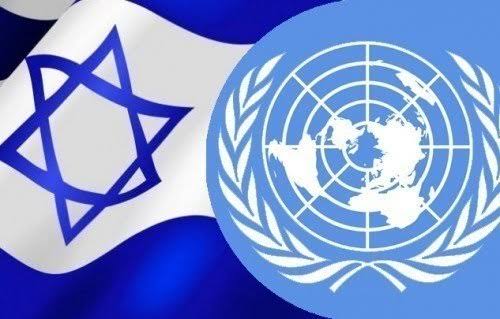In the midst of the ongoing Israel-Hamas conflict, the United Nations finds itself at the center of a contentious diplomatic showdown, with resolutions and rhetoric taking center stage. The conflict, which has continued for more than three weeks, has seen the international community grappling with political posturing rather than making a significant impact on the ground.
The United Nations, often referred to as the world’s premier political theater, has become a stage for impassioned speeches and diplomatic maneuvers, particularly when major powers cannot find common ground. The situation in Gaza has parallels with Russia’s war on Ukraine, where achieving consensus has proven challenging. Richard Gowan, the International Crisis Group’s U.N. director, aptly summarized the situation, stating, “the U.N. is basically a stage for speechifying and posturing.”
In the UN General Assembly, resolutions related to the Israel-Hamas conflict have been far from straightforward. A resolution, initially proposed by Jordan on behalf of the group of Arab countries, aimed at calling for a cease-fire in Gaza but made no mention of the October 7th attack when Hamas abducted over 200 Israelis and foreign nationals, resulting in numerous casualties.
Canada sought to amend the resolution, including language condemning “the terrorist attacks by Hamas” and demanding the “safety, well-being, and humane treatment of the hostages.” However, the amendment did not secure the required two-thirds majority for passage, with 88 votes in favor, 55 against, and 23 abstentions.
In an attempt to bridge the divide, the Arab Group added language condemning “acts of terrorism and indiscriminate attacks” without naming Hamas specifically. The final version of the resolution also emphasized the need for an “immediate, durable, and sustained humanitarian truce leading to a cessation of hostilities.” Ultimately, the resolution passed with 121 votes in favor, 14 against, and 44 abstentions.
Notably, Israel’s traditional supporters displayed a wide range of positions on the resolution. While Belgium, France, and Spain voted in favor, Canada, Germany, and the United Kingdom abstained, and Austria, Czechia, and the United States voted against it. This marked a departure from their coordinated support for Ukraine in the General Assembly, where 141 countries voted to condemn Russia’s invasion in February.
The heated exchanges in the General Assembly also reflected the deep divisions. Israel’s U.N. ambassador, Gilad Erdan, criticized the resolution for not mentioning “the depraved murderers who initiated this war.” He had earlier called for the resignation of U.N. Secretary-General António Guterres after Guterres suggested that the Hamas attack did not happen in a vacuum.
The Security Council faced its share of challenges, with drafts by Russia, Brazil, and the United States falling short of the required nine votes for approval. The U.S. vetoed the Brazil draft, while Russia and China vetoed the U.S. draft. Now, the 10 elected Security Council members are crafting a new humanitarian resolution in the hope of avoiding any vetoes by the five permanent members.
Despite these diplomatic efforts, the historical context reveals that U.N. cease-fire resolutions often lead to only temporary reductions in hostilities. The realignment of voting blocs at the U.N. may have far-reaching implications for global peace and security. The ongoing Israel-Hamas conflict has also diverted attention from Russia’s war in Ukraine, which has recently escalated in Avdiivka. In Washington, some politicians have called for separating funding for Israel and Ukraine, creating divisions within the Republican Party. Furthermore, the U.N.’s focus on the Middle East conflict has reduced attention on Russia, as evidenced by a sparsely attended press briefing on human rights in Russia.
In conclusion, the diplomatic struggles at the United Nations over the Israel-Hamas conflict reflect the complexities of international relations and the challenge of finding common ground in a highly polarized environment. As the conflict continues, the world watches closely to see if diplomatic efforts can bring about a lasting resolution to the crisis.

